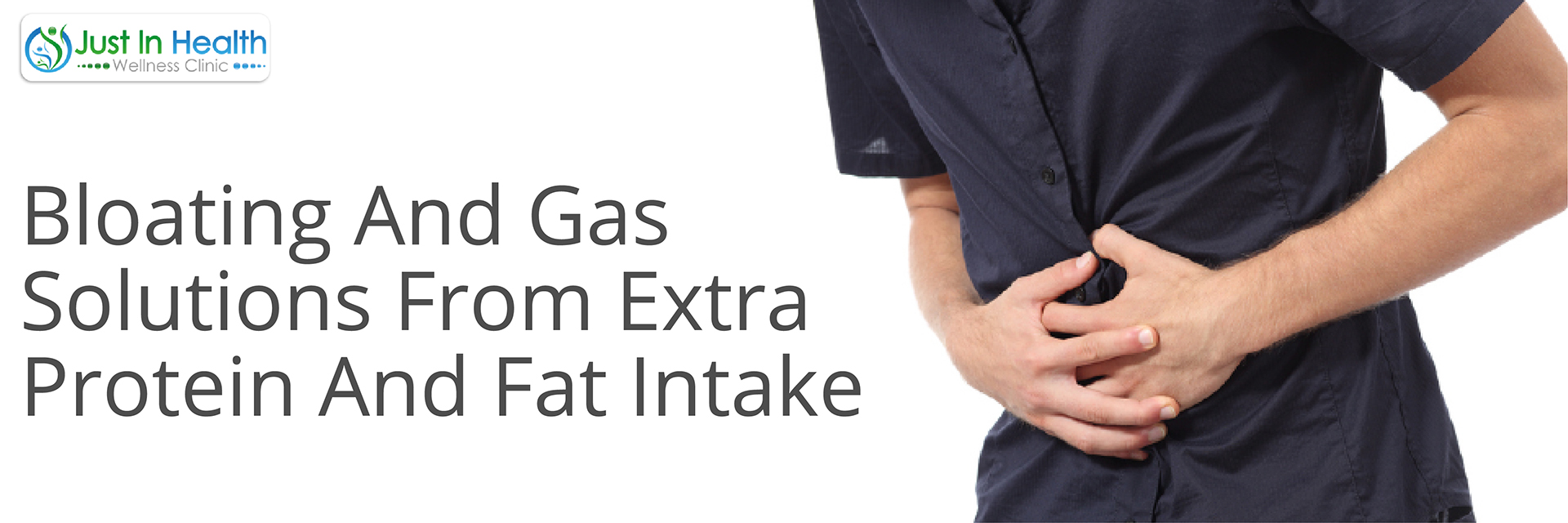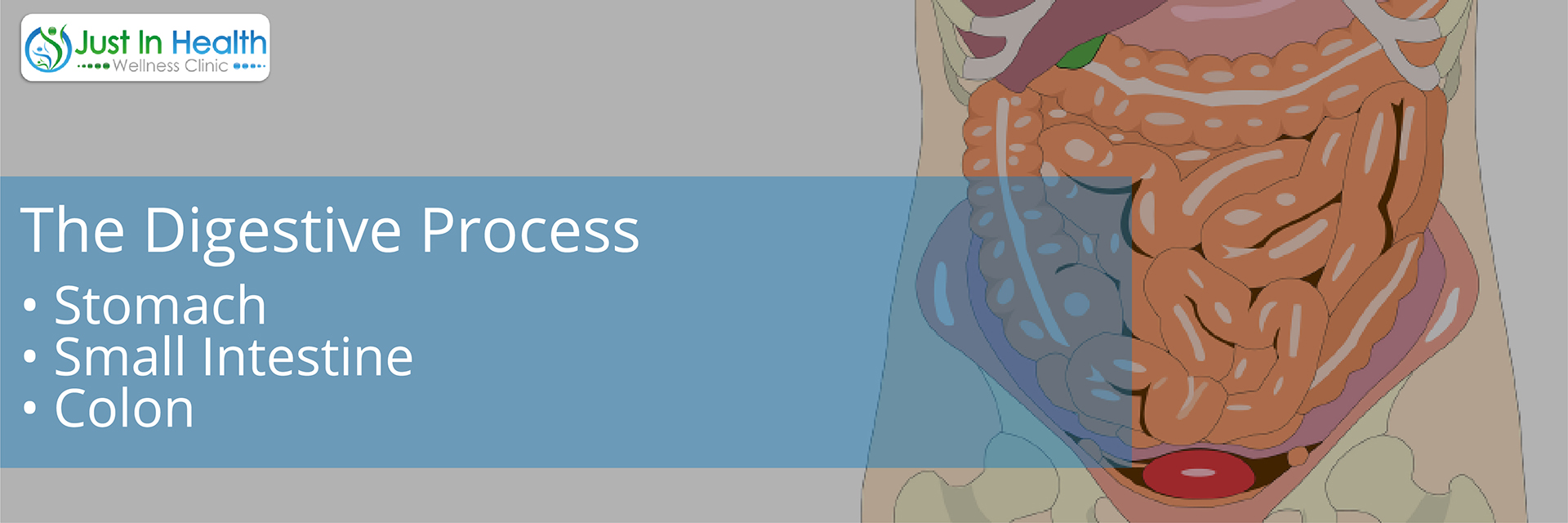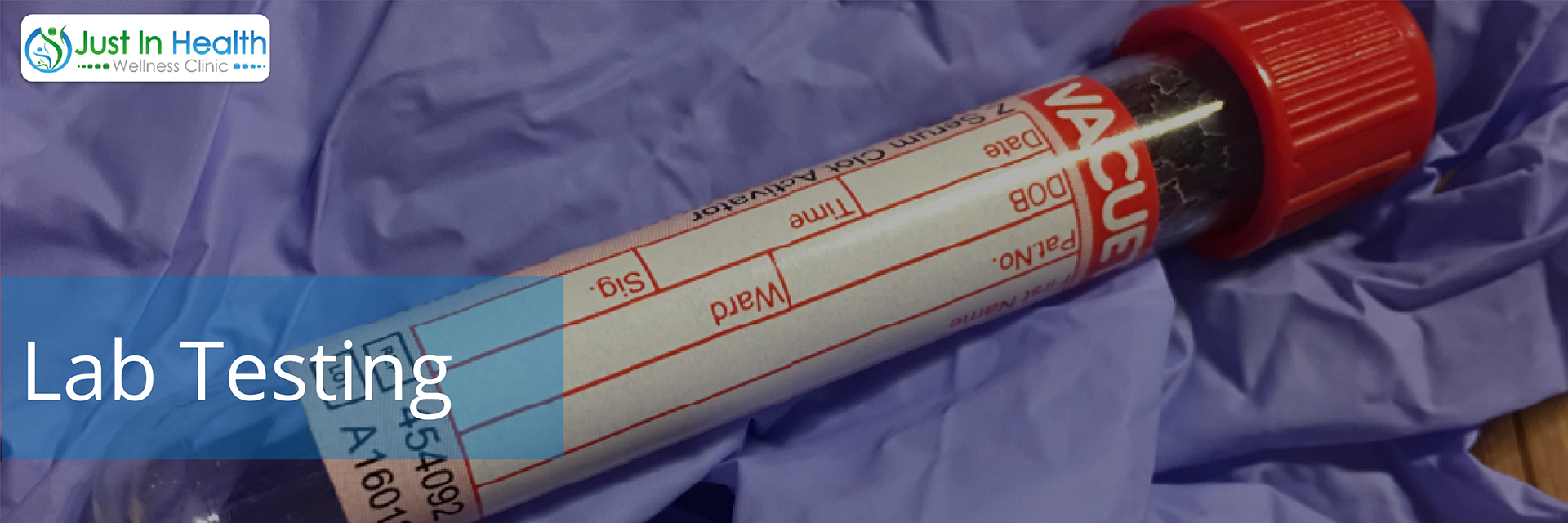
 By Dr. Justin Marchegiani
By Dr. Justin MarchegianiToday's talk is going to be on gas and bloating from increasing proteins and fats in your diet. I see this quite frequently with patients in my clinic where patients have come to me. They’re on the standard American diet, a lot of processed carbs, a lot of grains. That kind of 60, 15, 20—60-70% carbohydrates, lower amounts of fats and moderate amount of proteins.
And now, we are changing their diet around by reducing a lot of the inflammatory foods, the grains, the refined sugar, the inflammatory omega 6 fats. We are pulling them out and shifting it. We are increasing good fats and maybe some more good protein to stabilize blood sugar. And guess what happens? They start getting bloaty and gassy. Now what does that mean? So let's break down some of the digestive physiology. Let’s go through what it could potentially mean and some interventions and treatment options.
Let's give you some contextual value of what the physiology is doing so it makes sense. So we have our stomach and kind of laid it out, left or right. Typically the intestines are all kind of mushed up in this spaghetti goose. Protein digestion primarily happens in the stomach. What does that mean? So if we start giving someone more protein, more high-quality protein, whether it’s grass-fed meat, maybe omega 3 rich, you know, wild Alaskan sockeye salmon, maybe a clean collagen powder, that protein—well, maybe not the powder per se; but the real animal whole food proteins, they get digested in the stomach.

Step one is when hydrochloric acid is produced. Hydrochloric acid activates certain enzymes from the stomach that kicks off the cascade for protein digestion. Step two is this acidic chime. This nice low pH of about 2-2.5, gets released into the small intestine and from here, what happens is we have our organs involved—imagine this being our gallbladder (GB) and then this is our pancreas. Based on the acidity, they actually shoot over some bile salts and some enzymes, multiple enzymes—lipase, trypsin, chymotrypsin.
In the gallbladder, we have various bile salts and that’s going to kick off fat digestion. But again there's still going to be some protein digestion happening in the small intestine as well. This is because we do have other proteolytic enzymes coming out from the pancreas such as trypsin and chymotrypsin. So you can see protein digestion here. Fat and protein digestion is here.
Now again, this is the first part of the small intestine. So this is the small intestine down here and these are the different parts: the duodenum, the jejunum, and the ileum. And again, we need nice acidity coming in here. So here are the three parts. A lot of the nutrients gets reabsorbed in the small intestine and if we don't break it down at step one or step 2, then we’re going to have problems here.
Here's our colon here as well. And again, what typically happens here is nutrients are all extracted here and then what happens here we have electrolytes get re-uptaken along with different fluids as well. So we have electrolytes met various minerals and then fluids. We have proteins, fats and proteins, and electrolytes and fluids. And we have different processes that can go wrong that can create dysfunction.
Now let’s talk about what can happen. So over here with the stomach, we can easily have acid reflux and heartburn if we're not breaking down our protein correctly. Again, the nice acidity tightens up this esophageal sphincter up there. So nice acidity closes that up tight and prevents acids from rising up. We have to make sure we break it down. And so we reflux to that esophageal sphincter to close it up so that acid won't come back up.
Same thing down here in the small intestine. If we don't create a whole bunch of these enzymes to break down these foods, we’re going to have more fermentation, putrefaction and rancidification. Rancidification are fats going bad. Fermentation is going to be carbohydrates getting a whole bunch of gases being fed on by the bacteria being created, and then putrefaction is the proteins rotting.
If we don't have this happen correctly here, a whole bunch of gas, a whole bunch of bloating will happen. We have our ileocecal valve acting as a two-way street, so we have either bad bacteria from here going this way, or bacteria going the other way. So if we have bad bacteria, it can go back and forth and create more gas, more bloating, more flatulence, and more intestinal disruption. The bloating, the gas, the discomfort, the indigestion, feeling is like there’s a brick in your tummy.
With stomach issues, one of the first things we notice is burping, belching. Excessive gas is here because food is not being broken down properly. Now more fats and proteins do a couple of things. They put more stress on your digestive system. So let's say you have this much hydrochloric acid and enzymes in your stomach to digest much protein and fat; if we start increasing protein and fat because your digestive physiology is not going to be enough to start creating an indigestion of protein down here, then it will give rise to acid reflux, maybe the burping, the belching and the bloat.
And then same thing happens down here; if we don't knock over this domino correctly, let’s say it falls and misses, the second domino is not going to fall correctly either. So we’re going to have maldigestion of more fats and more proteins, and this can create more gas in the intestines, more bloating, more gas.
We may start even to see with the fermentation, putrefaction and rancidification lower in the intestines. We may even start seeing more flatulence, too. And a good gauge is if your flatulence is kind of foul-smelling, that's more methane. Methane gases tend to drive more constipation. Hydrogen gases tend to be more air like you don’t have the foul odor as much. But again, those are just general rules of the game there.
And then again, you can see here with the colon, we could have either constipation or diarrhea from the colon. Again if we have excess hydrogen gas, we can have more diarrhea, excess methane gas more constipation, or we can have a combination of the two, an alternate back and forth. So you can see here, each step is really important – Protein, protein and fat, reabsorbing electrolytes and fluid.

Now we can do different lab testing to look at the function each step along the way. So in the stomach, we may look at glucose testing or we may look at various H. pylori test or dysbiotic bacteria test to look for things that could be causing protein to maldigest in the stomach.
With fats and proteins in the small intestine, we may look at SIBO testing, like a lactulose breath test which can be effective at looking at the hydrogen and methane gases. Of course, different highly functioning stool—highly specialized stool tests that maybe look at DNA or stool antigens of various infections like parasites, bacteria, Klebsiella, Citrobacter, fungal overgrowth. Also, the different types of critters and worms can be effectively looked at with this type of testing.
And again, infections can affect any step along the way and if you have an infection up higher, guess what? It’s going to cause the domino of top to fall off track and then all the other dominoes below will be off kilter. So again, issues up top can cause issues to spill down to the next and so on.

Well, obviously diet is going to be important. So if we draw our 3 macronutrient dials—these are our dials here. So we have carbs, proteins and fats. Imagine we can control our little dials or we have levers. Either one to help get your mind wrapped around it, we would just dial down the proteins and fats just for the time being. We also work on supporting digestive secretions, HCL enzymes, bile salts to help break down these foods in the stomach. So that's a really good start.
We may even look at certain diet options, too. Even FODMAP approaches or specific carbohydrate approaches where we cut down these Fermentable, Oligo-, Di-, Mono-saccharides and Polyols—the specific fermentable sugars in the diet. We may even look at cutting out phenols and salicylates, and even peeling and/or really mashing and cooking our vegetables well, and even avoiding raw veggies, too.
Click here now to get treated for any digestive issues by a functional medicine doctor!
We treat the various infections that come up and we also may have, depending on how long the problems have been happening, malabsorption. And the longer it’s been happening, the more nutrients get malabsorbed. Part of what’s important in the stomach and hydrochloric acid is it helps to ionize minerals. That allows minerals to get into the bloodstream and to go where they need to go, so they can be absorbed and utilized.
So we can easily have mineral issues and minerals are so important because zinc helps make hydrofluoric acid. If we are low in zinc, that can affect our body’s ability to make more hydrochloric acid. It also affects sex hormone levels. If we have low sex hormones and the more inflamed we are, that will cause inability to repair.
Also if we can't break down proteins, it will affect other factors, too, since proteins become our neurotransmitters. It helps how we feel, control the reward centers like dopamine and serotonin. It also becomes the precursor to sleep hormones like melatonin. And you can see, if your sleep starts going and your mood starts going, and then we lose the ability to break down high-quality cholesterol in our diet that’s the building block to a lot of our hormones, we now start having poor sleep, poor sex hormones, poor mood. We also have PMS, we have brain fog, and we don't have the building blocks to help our body repair.
So you can see digestive issues can really start to make this whole thing spiral out of control.
Try some of the things I already mentioned earlier in the video. If that’s not working, click on screen so you can schedule a consult with myself. We can dig in a little bit deeper and help you get to the next step of what could be going on under the hood, so to speak. And then also click on the subscribe button. We have more videos coming your way, lots of great solutions to your everyday health challenges.